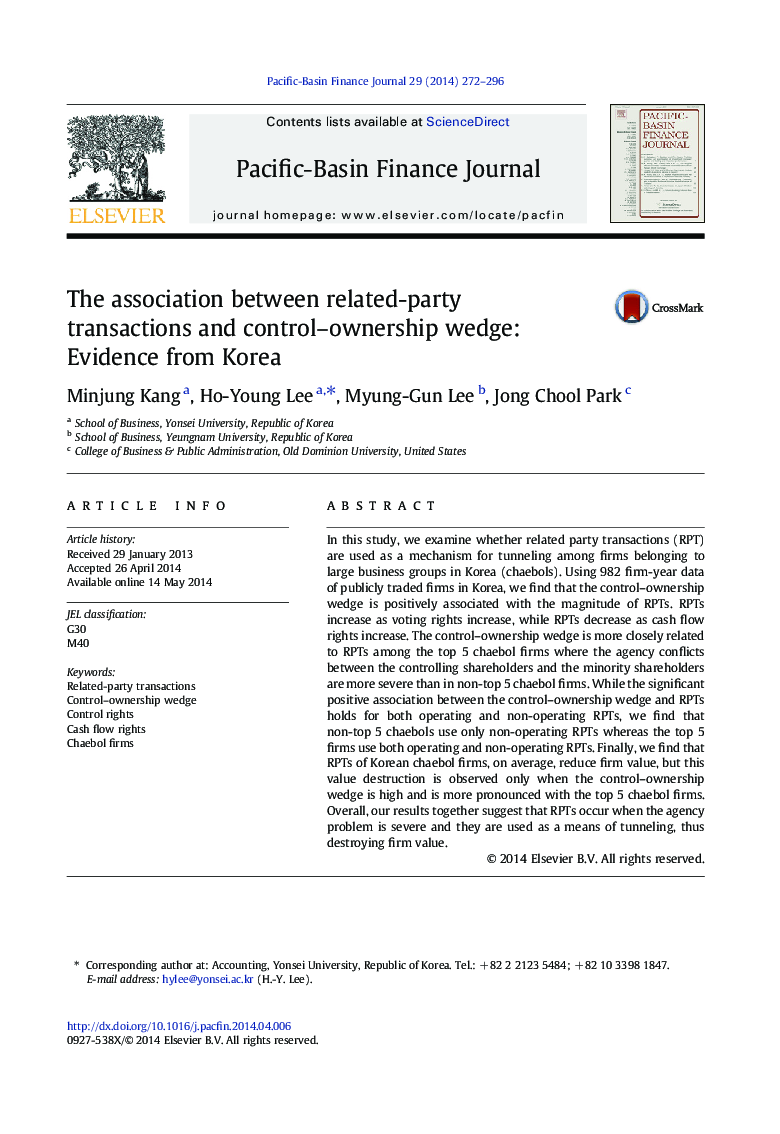| Article ID | Journal | Published Year | Pages | File Type |
|---|---|---|---|---|
| 973602 | Pacific-Basin Finance Journal | 2014 | 25 Pages |
In this study, we examine whether related party transactions (RPT) are used as a mechanism for tunneling among firms belonging to large business groups in Korea (chaebols). Using 982 firm-year data of publicly traded firms in Korea, we find that the control–ownership wedge is positively associated with the magnitude of RPTs. RPTs increase as voting rights increase, while RPTs decrease as cash flow rights increase. The control–ownership wedge is more closely related to RPTs among the top 5 chaebol firms where the agency conflicts between the controlling shareholders and the minority shareholders are more severe than in non-top 5 chaebol firms. While the significant positive association between the control–ownership wedge and RPTs holds for both operating and non-operating RPTs, we find that non-top 5 chaebols use only non-operating RPTs whereas the top 5 firms use both operating and non-operating RPTs. Finally, we find that RPTs of Korean chaebol firms, on average, reduce firm value, but this value destruction is observed only when the control–ownership wedge is high and is more pronounced with the top 5 chaebol firms. Overall, our results together suggest that RPTs occur when the agency problem is severe and they are used as a means of tunneling, thus destroying firm value.
